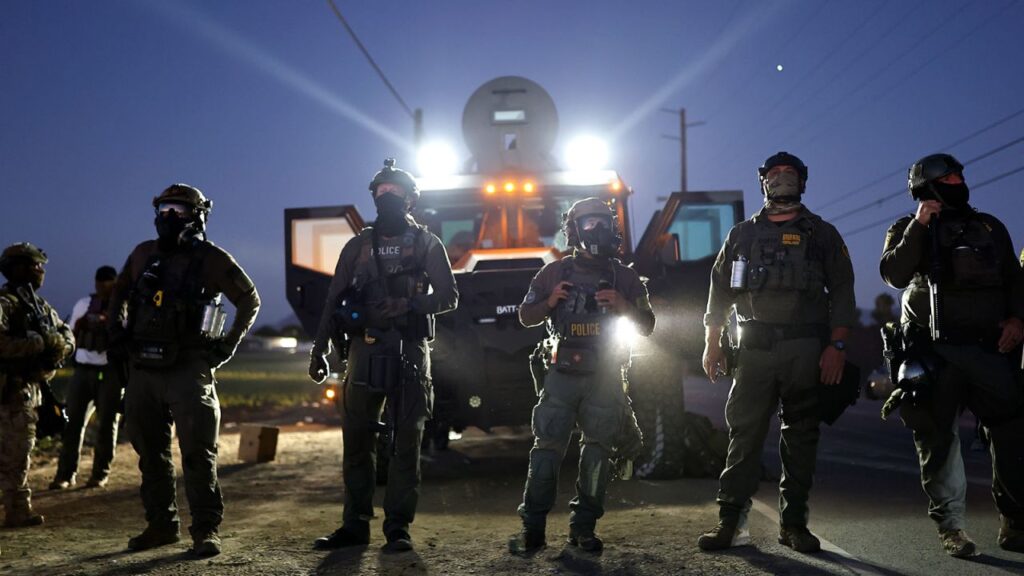
The discussion surrounding mask mandates for U.S. Immigration and Customs Enforcement (ICE) agents has intensified, particularly in California. Congressman Lou Correa, a Democrat representing the state, has publicly addressed concerns regarding the health and safety measures undertaken by ICE during arrests amid the ongoing COVID-19 pandemic.
Correa’s remarks come in light of reports indicating that ICE agents have been less consistent in wearing masks while conducting operations. This inconsistency raises questions about the potential risks posed not only to agents but also to the communities they serve. During a media briefing on October 10, 2023, Correa emphasized the importance of adhering to health guidelines to ensure the safety of all individuals involved.
Health Concerns and Policy Implications
The debate over mask-wearing policies within ICE reflects broader health concerns that have emerged throughout the pandemic. Correa pointed out that proper protective measures should be a priority, particularly when agents are in close contact with individuals during arrests. He stated, “We must prioritize health and safety for all, including our law enforcement officials. It is vital that ICE agents wear masks to protect themselves and the public.”
The Congressman also referenced data from the Centers for Disease Control and Prevention (CDC), which underscores the effectiveness of masks in limiting the spread of COVID-19. According to the CDC, areas where mask mandates are enforced have seen a notable decrease in transmission rates. Correa’s advocacy for mask compliance indicates a push for policy changes within ICE to align with these public health recommendations.
Political Reactions and Future Actions
The issue of mask mandates has sparked varied reactions across the political spectrum. While many Democratic lawmakers support stricter health guidelines for federal agencies, some Republican representatives argue that personal choice should dictate mask usage. This division reflects ongoing tensions over public health policies in the United States.
In response to Correa’s statements, ICE has not issued an official comment regarding potential policy changes. However, the Congressman has indicated that he plans to continue advocating for enhanced safety measures in Congress. He aims to introduce legislation that would require all federal law enforcement agencies, including ICE, to adopt clear health protocols that prioritize the well-being of agents and the communities they engage with.
The outcome of this debate will likely influence how federal agencies manage health protocols moving forward, especially as the pandemic evolves. As lawmakers work to balance public health and enforcement duties, the conversation surrounding ICE’s mask policy is expected to remain a focal point in California and beyond.
In the coming weeks, public hearings may be scheduled to further address these issues, allowing for community input and a more comprehensive discussion on the future of health protocols in law enforcement. Correa’s leadership in this matter highlights the critical intersection of public health, safety, and immigration enforcement, which continues to shape legislative priorities in the current climate.






